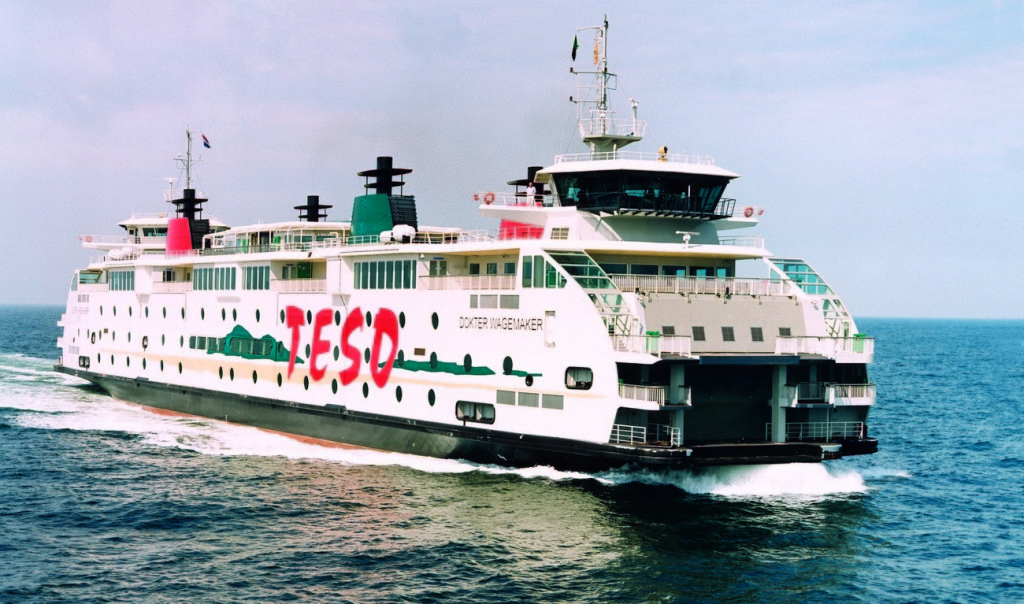Electrifying Everything and Cleaning the Grid-Mix

1) Getting coal out of the grid-mix asap, followed, as feasible, by natural gas
2) Electrifying light-duty transportation
3) Electrifying everything else, i.e., the more difficult applications: air travel, ocean shipping, class 8 trucks, etc.
Here’s an article that speaks to one of the pesky “step three” situations, large ferries.
We’re getting there.

Craig,
The article you sourced was very interesting, although somewhat vague in detail.
In fact, there are no plans (although a lot of hot air) to build all-electric ferries, that was always impractical.
But the project is still very exciting !
Over the next few years, Washington State Ferries will convert three from a fleet of 23 ferries to become hybrid electric.
The vessels chosen for the conversion will be the Jumbo Mark II , Tacoma, Puyallup and Wenatchee. These vessels will have two of the existing four engines removed and 100 tons of batteries coupled with electric motors installed.
The hybrid engineering will be ambitious, since unlike the common diesel-electric technology locomotives which have been in service since the early 1960’s, these ferries will operate with the batteries being recharged from an onshore charging facility.
It’s hoped these ferries derive up to 20% of their power from their electric batteries.
Washington State Ferries is owned and operated by the taxpayers of the of Washington and is heavily subsidized. The total cost of conversion is estimated to be in the vicinity of $120 million.
The whole project is dependent on approval of funding from the federal Department of Transportation, the Federal Highway Administration, the Federal Transit Administration and settlement funds from Volkswagen settlement.
Even then the project must be approved by the state Legislature.
The timelines would appear to be a little optimistic as final studies on the feasibility of converting such aging vessels are not yet complete and most of the engineering studies are yet to be undertaken.
Early studies on the cost of fuel savings proved to be inaccurate as they were based on unrealistically high diesel pricing and consumer retail pricing, not the price paid by the government for fuel.
The project has critics(what project doesn’t) who claim the money is simply a green washing exercise and WSF would be better using the money toward purchasing a new vessel already fitted with advanced technology. Critics argue building new ferries similar to European Ferries which use environmentally superior LPG/LNG hybrid technology would be a wiser investment.